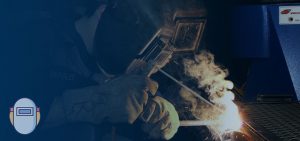A plumber is a skilled worker who specializes in the installation, connection, and repair of plumbing equipment.
At the moment, the responsibilities of this specialist are connected with heating, water supply, and sewage.
A plumber is responsible for:
- installation of plumbing systems, as well as heating, water, and sewer devices;
- commissioning of plumbing;
- installation of special water supply and sanitation systems in public institutions (baths, pools, etc.);
- ensuring the operation of urban heat, water and sewer systems;
- monitoring the proper operation of plumbing fixtures, faucets, and pipes;
- quick troubleshooting and identification of their causes.
The work of a plumber and pipefitter is often considered similar.
Nevertheless, lots of technical features differ one type of work from another.
Responsibilities Of Plumbers
Professional specialists can handle even the most complex tasks.
Thus, they install a washbasin, a bath or shower, or a boiler.
Besides, they lay heating networks and fulfill other plumbing works with a qualified approach.
Apart from this, plumbers connect washing machines and install dishwashers.
In addition, they mount a boiler and connect heating radiators.
Also, an urgent call for a specialist is part of an emergency situation that occurs in your home.
For example, you might face a pipe break, equipment replacement, leakage of plumbing units, etc.
Tasks Of Pipefitters
Responsibilities of pipefitters include a wider amount of work with pipes, for example:
- Procurement of pipes, trimming, bending, machining for welding, and assembly;
- Reading drawings and diagrams of pipelines of different complexity;
- Removing templates and layouts, sketching for the manufacture of pipes;
- Installation of pipelines for various purposes of galvanized steel, stainless steel, titanium, copper, plastic, etc.;
- testing the latter in accordance with accepted technical requirements and enterprise standards.
Training
Training programs for plumbers and pipefitters are quite similar.
Having passed the training, each student comes to an understanding of the basic methods required to control the quality of work and compliance with environmental protection measures.
In addition, students receive special knowledge on the profession of a plumber and work with fittings.
They practice installing plumbing equipment, the basics of plumbing, hot water supply, external heating networks, and sewerage.
Although, at the same time, the content of training programs differs depending on specialization.
Work Environment
Plumbers provide functioning of heating, water supply, and sewage systems in cities and towns.
They work in buildings, hotels, airports, and stadiums.
Moreover, plumbers and pipefitters work in construction as installers of sanitary systems and equipment, and emergency services workers.
Pipefitters work basically on huge industrial objects like oil refineries and power plants.
Successful work as a plumber or pipefitter requires the following important professional qualities:
- physical endurance;
- ability to concentrate and distribute attention;
- developed hand-eye coordination;
- mobility of the hands;
- patience, accuracy, responsibility.
This page is also available in Spanish.










